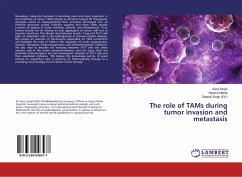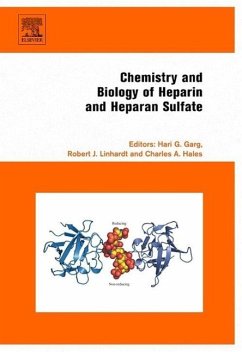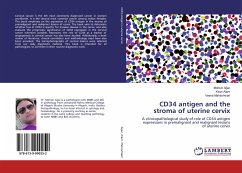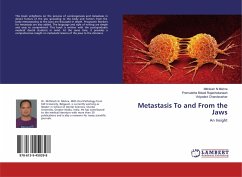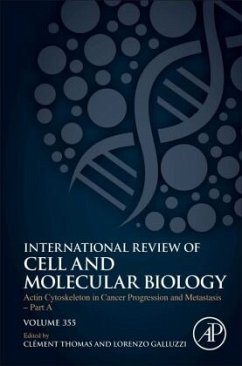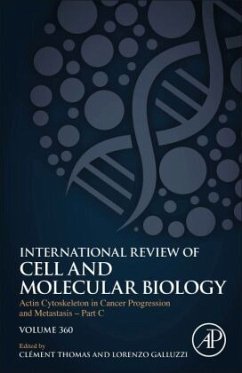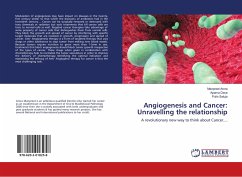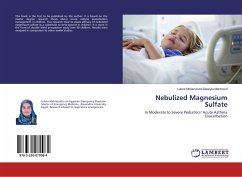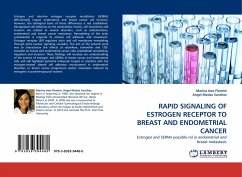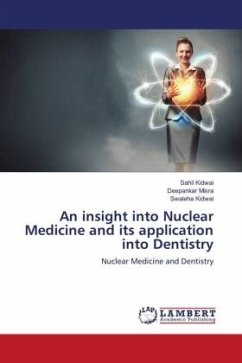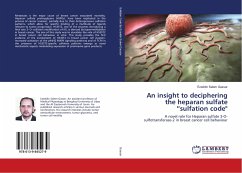
An insight to deciphering the heparan sulfate "sulfation code"
A novel role for Heparan sulfate 3-O-sulfotransferase-2 in breast cancer cell behaviour
Versandkostenfrei!
Versandfertig in 6-10 Tagen
43,99 €
inkl. MwSt.

PAYBACK Punkte
22 °P sammeln!
Metastasis is the major cause of breast cancer associated mortality. Heparan sulfate proteoglycans (HSPGs), have been implicated in the process of cancer invasion, partially due to their heterogeneous sulfation patterns, which allow for specific binding of a multitude of ligands relevant to tumor progression. HS3ST2, one of the enzymes introducing a final rare 3- O- sulfation modification of HS, is silenced by hypermethylation in breast cancer. The aim of this study was to elucidate the role of HS3ST2 in breast cancer cell behaviour in vitro. This study provides the first evidence of the invol...
Metastasis is the major cause of breast cancer associated mortality. Heparan sulfate proteoglycans (HSPGs), have been implicated in the process of cancer invasion, partially due to their heterogeneous sulfation patterns, which allow for specific binding of a multitude of ligands relevant to tumor progression. HS3ST2, one of the enzymes introducing a final rare 3- O- sulfation modification of HS, is silenced by hypermethylation in breast cancer. The aim of this study was to elucidate the role of HS3ST2 in breast cancer cell behaviour in vitro. This study provides the first evidence of the involvement of HS3ST2 in breast cancer cell invasion. Increased activation of the p44/42 MAPK signaling pathway and of TCF4 in the presence of HS3ST2-specific sulfation patterns emerge as novel mechanistic aspects modulating expression of proinvasive gene products.



